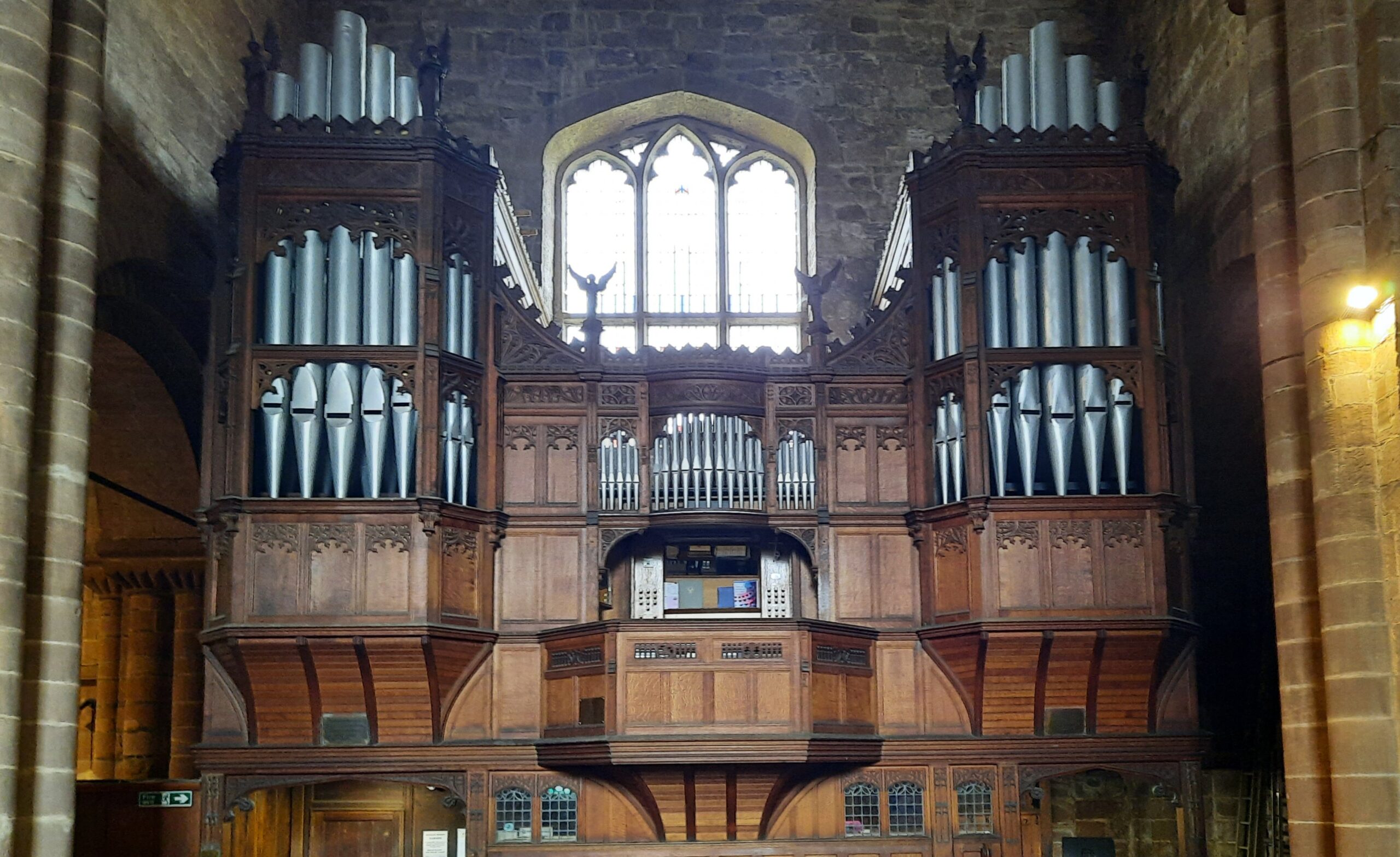A valuable resource
The organ is usually the largest item of furniture in a church. Its prime purpose is to support singing, both of a choir and of the whole congregation.
Mozart called the organ ‘The King of Instruments’. It commands both the widest range of pitch of all instruments and also the widest range between loud and soft. The organ is able to produce sound continuously without the sound dying away or pausing for breath. This has led to the organ being the pre-eminent instrument to accompany choirs.
There were organs in churches before the Norman Conquest. Later, many instruments were destroyed by Oliver Cromwell’s troops. As a result the great majority of church organs today date from the second half of the nineteenth century. Nevertheless organs are more long-lived than most other instruments. Well-made organs can give excellent service for many years if they are properly cared for. It is common to find instruments functioning efficiently after a century or more, with only occasional cleaning and minor repairs. An organ in good condition is an important incentive when seeking the services of capable musicians.
General Care
- The organ and its surroundings should be kept free of dirt and rubbish and guarded against interference or vandalism.
- Actual leaks of water can cause expensive damage if drips from a faulty roof or drain fall on leather and timber components.
- Organs should be protected if decorators are working above them. Metal organ pipes seldom corrode but are made of soft metal and can be easily damaged by inexpert handling.
- Heating systems that produce very rapid changes in temperature are wasteful of fuel (much of the heat goes up into the roof) and rapid changes in temperature can upset the tuning of an organ.
- All-week winter heating leads to low atmospheric humidity, affecting all timber structures. Older organs, made before church heating became general, can then develop expensive mechanical and tuning problems. Care is needed to avoid over-heating. The installation of an organ humidifier can help protect 100-year-old soundboards from splitting.
Restoration
After an extended period of use – twenty-five to fifty years – an organ will fill up with dust. It will tend to go out of tune and the sound of some stops may become irregular. Mechanisms may become noisy or unreliable. It will then be time to have the organ cleaned.
More extensive work may be needed after about 100 years, when leather working parts of the wind supply may need replacement. Where fitted, electrical and pneumatic mechanisms may need attention earlier.
There is often a temptation to use restoration work as an opportunity to carry out ‘improvements’. This should normally be resisted. Once changed, integrity is difficult to restore. In particular:
- Avoid introducing different ranks of pipes as a response to temporary fashion.
- Avoid changing the type of pedalboard – wrong pedalboards never fit properly.
- Avoid replacing original ivory key coverings and fittings if at all possible.
- Avoid replacing mechanical stop controls with electrically-operated replacements.
Significance
Organs, like other musical instruments, are works of art. The most significant examples rank alongside famous violins and paintings by great masters. The significance of an organ increases with its age, rarity, and the extent to which it remains in its original state. Many (though not yet all) historic organs now have their status confirmed by listing. The listing status of an organ can be found by consulting the on-line National Pipe Organ Register: npor.org.uk.
Maintenance
An organ needs relatively infrequent but careful attention to keep it in good order, preferably by a skilled professional. Amateurs often cause expensive damage.
Details of accredited organ builders and their specialisations can be found on www.ibo.org.uk/register/search.php. Organs should not be tuned more often than is required for acceptable performance.
Further Information
- If you need independent specialist advice, details of accredited professional advisers can be found on www.aioa.org.uk.
- It is unwise to replace real organs with loudspeaker-based imitations. Experience has shown that they have a relatively short replacement cycle and that most competent musicians find them unattractive.
- If you want to find out more about the history of your organ, useful information can often be found on the on-line National Pipe Organ Register: npor.org.uk.
- The restoration of historic organs can attract grant funding. Information on grants can be viewed here.
